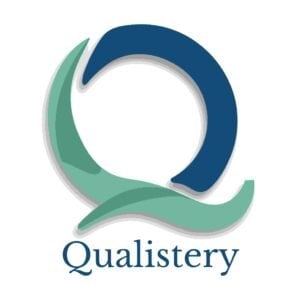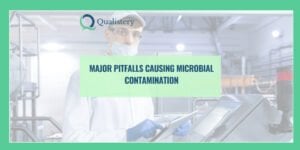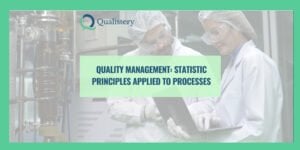The distribution of pharmaceuticals is a complex and highly regulated process that encompasses multiple stages to ensure the quality, safety, and integrity of medicinal products. Within the European Union (EU), there are stringent regulatory requirements that must be met by companies involved in the distribution of medicines. These requirements are in place to safeguard patient health and prevent the entry of counterfeit or falsified medicines into the legal supply chain.
Compliance with these regulations is critical for pharmaceutical companies, wholesalers, distributors, and other stakeholders involved in the distribution process to maintain the highest quality standards throughout the supply chain. In this article, we will explore the importance of the distribution process, the different guidelines that must be followed, and the different certifications/authorisations that distributors need to operate within the EU. Understanding the regulatory landscape of pharmaceutical distribution in the EU is essential for companies operating in this industry to meet compliance obligations and protect patients from harm.
What does a distributor need to operate?
The supply chain of medicinal products involves multiple stakeholders, with the wholesale distributor playing a pivotal role. The wholesale distribution of medicinal products is defined by Article 1(17) of Directive 2001/83 from the European Commission (EC). It includes procuring, holding, supplying, or exporting medicinal products, except for supplying medicinal products to the public. That means wholesale distribution can source, store, and distribute medicinal products to various stakeholders in the supply chain, such as pharmacies, hospitals, other wholesalers, and exporters.
The responsibilities of a distributor include adhering to acceptable temperature limits during storage and transportation, ensuring product integrity, accurate shipment to designated locations, and preventing falsified medicines from entering the market.
To operate as a wholesale distributor, it is mandatory to obtain at least the following:
- Wholesale Distribution Authorisation: It is issued by the relevant regulatory authority in the EU member state where the distributor operates. It grants the distributor the legal authority to wholesale medicinal products within the designated territory.
- A Good Distribution Practice (GDP) certification issued by the national regulatory authority of an EU member state: GDP certification verifies that the distributor follows the established standards and procedures for the storage, transportation, and distribution of medicinal products, ensuring their quality, safety, and integrity.
It’s important to note that the requirements for authorisations and certifications may differ depending on the type of medicinal products being distributed, the scope of activities, and the regulations of the EU member state in which the distributor operates. Therefore, it is crucial for distributors to thoroughly understand the regulatory requirements to ensure legal and compliant operations within the EU pharmaceutical market.
Wholesale Distribution Authorisation
The wholesale distribution of medicinal products within the European Union (EU) is strictly regulated. According to Directive 2001/83/EC, Member States are required to implement measures that mandate the possession of a valid authorisation for engaging in wholesale distribution activities. This authorisation specifies the premises on which the wholesaler is permitted to operate, and the requirements may differ slightly from country to country.
One of the most critical requirements is adhering to pharmaceutical quality management following the EU Good Distribution Practice (GDP) guidelines, which ensures that the products are handled, stored, and transported in a manner that maintains their quality and integrity throughout the supply chain.
Furthermore, wholesalers must maintain adequate premises and facilities for storing and distributing medicinal products properly. This includes ensuring proper temperature control, hygiene, and security measures to prevent unauthorized access and safeguard the quality of the products.
Another crucial requirement is the appointment of a responsible person for wholesale distribution. This individual is designated to oversee and take responsibility for the wholesale distribution operations, ensuring compliance with regulatory requirements and maintaining the integrity of the supply chain. The responsible person for wholesale distribution plays a critical role in upholding the highest standards of quality, safety, and integrity in the distribution of medicinal products.
GDP certification
A Good Distribution Practice (GDP) certification is a regulatory requirement established by the European Union (EU) for wholesale distributors of medicinal products. It ensures wholesale distributors comply with strict regulations for pharmaceutical storage, transportation, and distribution to maintain product quality, safety, and efficacy throughout the supply chain.
Without the proper certification, distributors may face legal consequences, including fines, penalties, and suspension or revocation of their distribution license. In addition to meeting regulatory requirements, a GDP certification demonstrates a distributor’s commitment to quality and safety, which can enhance their reputation, build customer trust, and facilitate access to the EU market.
To obtain a GDP certification, a wholesale distributor must undergo an onsite audit by a competent national authority. The audit assesses the distributor’s compliance with EMA’s GDP guidelines which will be described below.
GDP principles
The Principles of Good Distribution Practice (GDP) by the European Medicines Agency (EMA) are guidelines that govern the distribution of medicinal products within the European Union (EU). These guidelines aim to ensure that the distribution operations of medicinal products are conducted in a manner that preserves their quality, safety, and integrity. The principles cover all aspects of the distribution chain and encompass requirements for implementing a Quality System (QS), proper storage and transportation of products, personnel, premises, and equipment requirements. Furthermore, the principles emphasize the importance of stakeholders’ awareness of their responsibilities in ensuring the safety and effectiveness of medicinal products throughout the distribution process.
The principles of Good Distribution Practice (GDP) by the European Medicines Agency (EMA) are:
1. Quality Management: The distributor must Implement a robust quality management system that ensures the integrity and quality of medicinal products throughout the distribution process. The distributor’s management is responsible for providing adequate resources for supporting and regularly reviewing the Quality System (QS).
2. Personnel: The distribution of medicinal products requires competent personnel to ensure compliance with Good Distribution Practices (GDP). All personnel involved in wholesale distribution activities should receive initial and continuing training on the requirements of GDP based on written procedures and a written training program. The wholesale distributor must designate a responsible person who will be responsible for implementing and maintaining the Quality System. The responsible person should have appropriate competence, experience, and knowledge of GDP, personally fulfil their responsibilities, and be continuously contactable. The roles and responsibilities of each employee should be clearly defined in an organizational chart.
3. Premises and equipment: The premises should be suitable and adequate to ensure proper storage and distribution of medicinal products. They should be clean, dry, and maintained within acceptable temperature limits. Premises should be designed and equipped to protect against the entry of insects, rodents, or other animals, and a preventive pest control program should be in place. Medicinal products should be stored in segregated areas that are clearly marked and have restricted access to authorized personnel. Products pending a decision on their disposition expired, returned, recalled, rejected, and falsified products should be physically segregated from the saleable stock and stored in a dedicated area. Particular attention should be paid to the storage of products with specific handling instructions as specified in national law. Special storage conditions and authorisations may be required for products such as narcotics and psychotropic substances.
4. Documentation: Documents are an essential part of any quality system. It includes written procedures, protocols, records, results, and data in paper or electronic form. Documentation should be readily available and comprehensive, written in clear language, and error-free. Procedures should be approved, signed, and dated by responsible personnel. Any alterations made should be signed and dated, and the reason for the alteration should be recorded. Documents should be reviewed regularly and kept up-to-date with version control. Superseded or obsolete procedures should be removed and archived. Records must be kept for all transactions of medicinal products received or supplied and should include relevant information such as date, product name, quantity, supplier/customer/broker information, and batch number for products with safety features. The records should be made at the time of each operation.
5. Operations: This section covers critical operations in the wholesale distribution of medicinal products, including supplier and customer qualification, receipt of products, and storage. Wholesale distributors must ensure that a marketing authorisation from the EU or a Member State covers the medicinal products they distribute. Suppliers should be checked for compliance with GDP and possess appropriate authorisations. Packaging information, supplier origin, and product integrity should be verified upon receipt. Storage should adhere to proper temperature and humidity conditions, and regular inventory checks should be performed. Expired products should be destroyed and the process documented. Medicines can only be provided to customers with a Wholesale Distribution Authorisation or entitlement to supply medicines to the public. Proper records of sold products should be maintained, including name, quantity, and batch number
6. Complaints, returns, falsified, and recalls: Complaints, returns, suspected falsified medicinal products, and medicinal product recalls must be recorded and handled carefully according to written procedures. Complaints related to product quality and distribution should be distinguished and reported to the Manufacturer/Marketing Authorisation holder promptly. Each complaint should be thoroughly investigated to indentify the root cause and correct it quickly. Returned medicinal products can only be returned to the saleable stock based on a risk-based process, considering product condition, storage requirements, and time elapsed since dispatch. The distributor must inform the competent authority and the marketing authorisation holder in response to identifying any falsified unit. A proper recall protocol should be in place and ready at any moment.
7. Outsourced activities: Outsourcing activities should be carefully defined, agreed upon, and controlled to maintain the integrity of the product. There should be a written contract between the contract giver and the contract acceptor that clearly outlines the responsibilities of each party. The contract giver is responsible for assessing the competence of the contract acceptor and ensuring that GDP principles and guidelines are being followed through audits.
8. Self-inspections: A self-inspection program should be implemented to monitor compliance with GDP. Self-inspections should be conducted impartial and detailed by designated competent personnel within the company. While audits by independent external experts may be useful, they should not substitute for self-inspections. All self-inspections should be recorded, and reports should contain all observations made during the inspection.
9. Transportation: This section discusses the transportation of medicinal products and outlines the principles and requirements for ensuring the quality and integrity of products during transport. The supplying wholesale distributor protects medicinal products against breakage, adulteration, and theft and maintains temperature conditions within acceptable limits during transport. Therefore, a risk-based approach should be used when planning transportation.
Conclusion
Distributors play a crucial role in the pharmaceutical supply chain by ensuring efficient and reliable distribution. Their responsibilities also encompass maintaining product integrity and quality, preventing falsified medicines from reaching patients, ensuring traceability and accountability, and adhering to good practices and procedures. The European Commission (EC) mandates that distributors obtain a Wholesale Distribution Authorisation and a Good Distribution Practice (GDP) certification, crucial safeguards to protect patient health. Compliance with these regulatory obligations is imperative for distributors and other stakeholders in the pharmaceutical industry to ensure the highest standards of quality and safety of the pharma industry. By upholding these standards, distributors contribute significantly to safeguarding patient health and well-being, making their role indispensable in the pharmaceutical supply chain.
Are you ready to launch your pharmaceutical products in Europe? Join us for Qualistery’s webinar, “Access the European Market: The Steps for a Flawless Product Launch”, on April 25th.

With a dedication to serving the pharmaceutical industry, Qualistery specializes in hosting informational webinars that support both professionals within the pharma sector and service providers. Our commitment lies in empowering businesses to maximize their impact through engaging virtual events and strategic webinar solutions. Additionally, Qualistery supports life science companies through private GxP training and compliance services.








